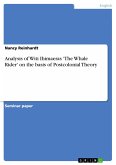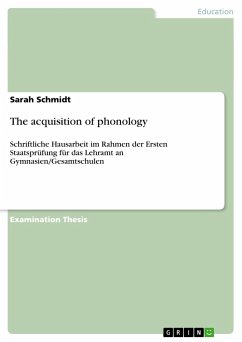Seminar paper from the year 2009 in the subject Didactics - English - Pedagogy, Literature Studies, grade: 1,3, Ernst Moritz Arndt University of Greifswald (Anglistik/Amerikanistik), course: Sound & Meaning: An Introduction to Suprasegmental Phonetics , language: English, abstract: The paper is concerned with the analysis of short linguistic units on the basis of David Brazil's theory of discourse intonation. The first part of the paper gives a general outline of Brazil's theory and his systematic approach to intonation analysis. The second part focusses on the analysis of suprasegmental phonetical structures of an actual text example. The paper is not aimed at presenting a new linguistic approach nor at critically analysing an existing theory but rather at using and exemplifying this theory. What is exemplified is David Brazil's theory of discourse intonation as presented in his book Pronunciation for Advanced Learners of English. Brazil's Discourse Intonation Intonation constitutes an essential element of language in oral communication and is thus subject of linguistic research. While the assumption that intonation carries meaning goes widely unchallenged, linguists still argue as to the exact function of intonation. David Brazil, along with other linguists, propagated the idea of intonation as being discoursal in function. He thus distances himself from those who conceive intonation as having a grammatical, accentual or attitudinal function. [...]
Bitte wählen Sie Ihr Anliegen aus.
Rechnungen
Retourenschein anfordern
Bestellstatus
Storno








